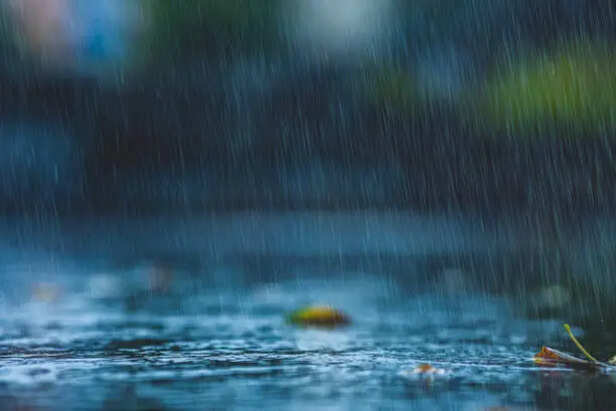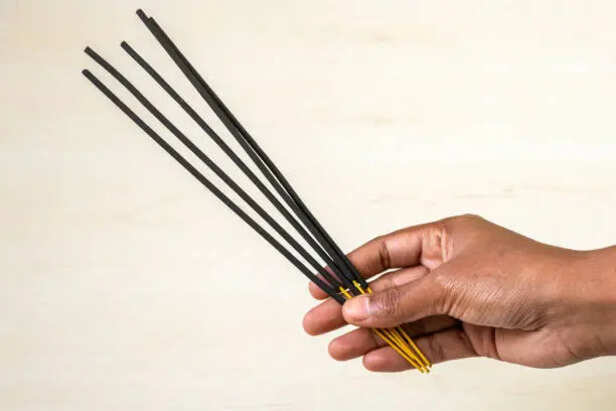That One Relatable Smell in Every Indian Childhood
Trisha Chakraborty | Sep 10, 2025, 07:00 IST
Soil
( Image credit : Pixabay )
Childhood is often remembered through the fragrances that shaped it. For most Indians, smells like wet earth after the first rain, incense during morning prayers, or rotis being made in the kitchen are more than scents they’re time machines. They carry us back to rainy afternoons with cousins, lunch breaks in school, festivals with family, and train journeys filled with food and chatter. These smells stitched themselves into our childhoods, and even today, one whiff of rain or agarbatti can instantly bring back those memories. This article explores those relatable scents that define every Indian childhood.
Smells have their own secret power. They don’t just hit your nose; they hit your heart. One whiff, and suddenly you’re not where you are you’re ten years old again, barefoot, sticky with mango juice, sitting on the terrace waiting for the monsoon. For most of us who grew up in India, childhood is less about dates and more about fragrances. The smell of wet mitti after the first rain. The smoky swirl of agarbatti during morning prayers. The sharp tang of pickle jars baking under the May sun. They’re not just smells; they’re bookmarks in our story.

Ask any Indian about childhood, and “mitti ki khushboo” will always come up. That first rain after a burning summer wasn't just weather. It was magic. The ground would crackle as raindrops fell, and suddenly the whole neighborhood smelt of fresh earth. Kids rushed out, ignoring umbrellas, their parents yelling from verandas. Paper boats were launched in muddy drains. Sandals got lost in puddles. That earthy smell was freedom itself.
If memory had a kitchen, it would smell like home. Every Indian household had its own aroma. In one, it was the sizzle of ghee hitting a hot pan, mustard seeds crackling, curry leaves dancing. In another, it was the sweet heaviness of payasam or kheer during festivals. And in almost every home, summer meant the fiery smell of red chili powder and mustard oil rising from giant pickle jars left out to dry on the terrace. There were “special” smells too the frying of pakoras on rainy evenings when the electricity cut out, the smell of hot rotis being buttered for the school tiffin, the sweetness of halwa that meant a guest had arrived. Even today, walking past a roadside jalebi stall or a peanut vendor, it’s hard not to stop and smile it’s like a hug from your childhood kitchen.

Our mornings as kids often began not with alarms, but with smells. Incense sticks curling in the air, the sharpness of camphor burning, the faint sweetness of flowers kept at the pooja corner. You may not have understood the prayers as a child, but the smell stayed. It meant safety. It meant routine. It meant the house was alive. Festivals multiplied this. Diwali smelt of marigolds, ghee diyas, and laddus. Eid smelt of biryani and kebabs floating through busy lanes. Durga Puja meant dhuno smoke, while Christmas carried the fragrance of fresh plum cake. Smells stitched themselves into every ritual, teaching us culture before we even had the words for it.

School life wasn’t just about blackboards and exams it had a smell too. Remember the fragrance of freshly covered books in brown paper? The chalk dust on our hands? The woody sharpness of sharpened pencils? Even the medicinal whiff of Dettol from the nurse’s room is a smell we all recognize. And then came tiffin breaks. The whole classroom became a buffet of aromas parathas with achar, idlis with chutney, puris with aloo, Maggi packed into steel boxes.
Every home had a smell that was uniquely its own. Maybe it was coconut oil in your mother’s hands as she braided your hair. Maybe it was naphthalene balls in the cupboard where sarees and woolens were kept safe. Maybe it was the faint detergent-soap smell of clothes just pulled from the line.

Childhood adventures outside the home came with their own whiffs. A railway station smelt of hot chai, samosas, and diesel fumes. A temple was sandalwood paste, flowers, and ghee lamps. A weekly market meant coriander, guavas, and frying pakoras all mixed together in the humid air. Each outing had its own “fragrance postcard,” and all of them together made up our growing-up years.
Science says smells are tied directly to the brain’s memory center. But honestly, we don’t need science to tell us this. One sniff of wet soil or mustard oil or jalebi frying, and your heart already knows it’s home. Smells stay because they carried emotions with them. They were tied to laughter, love, scoldings, festivals, and school mornings. They were invisible, but unforgettable.
As adults, we try to recreate those scents. Lighting an agarbatti in a new apartment. Cooking our mother’s dal recipe on a Sunday. Pausing to smell the first rain from a balcony. These small acts aren’t habits they’re our way of keeping childhood alive. And just like we inherited our memories through smells, kids today will have theirs Maggi on exam nights, sanitizer in classrooms, birthday cakes from neighborhood bakeries. One day, those scents will pull them back, just like mitti ki khushboo pulls us back.
India is too diverse to have one story, but our childhoods overlap in surprising ways. Somewhere between wet earth, incense, rotis, and rain, we all share a collective fragrance that ties us together. So the next time you catch a smell that feels oddly familiar, stop. Close your eyes. Let it take you back. Because sometimes, a smell isn’t just a smell it’s childhood knocking on your door again.
When the Rain Touched the Soil

Memories You Can Smell
( Image credit : Unsplash )
Ask any Indian about childhood, and “mitti ki khushboo” will always come up. That first rain after a burning summer wasn't just weather. It was magic. The ground would crackle as raindrops fell, and suddenly the whole neighborhood smelt of fresh earth. Kids rushed out, ignoring umbrellas, their parents yelling from verandas. Paper boats were launched in muddy drains. Sandals got lost in puddles. That earthy smell was freedom itself.
The Kitchen Was Our Perfume Shop
Agarbatti, Camphor, and Morning Prayers

Childhood in a Whiff
( Image credit : Unsplash )
Our mornings as kids often began not with alarms, but with smells. Incense sticks curling in the air, the sharpness of camphor burning, the faint sweetness of flowers kept at the pooja corner. You may not have understood the prayers as a child, but the smell stayed. It meant safety. It meant routine. It meant the house was alive. Festivals multiplied this. Diwali smelt of marigolds, ghee diyas, and laddus. Eid smelt of biryani and kebabs floating through busy lanes. Durga Puja meant dhuno smoke, while Christmas carried the fragrance of fresh plum cake. Smells stitched themselves into every ritual, teaching us culture before we even had the words for it.
Schools Had Their Own Scents

Scents That Shaped Us
( Image credit : Unsplash )
School life wasn’t just about blackboards and exams it had a smell too. Remember the fragrance of freshly covered books in brown paper? The chalk dust on our hands? The woody sharpness of sharpened pencils? Even the medicinal whiff of Dettol from the nurse’s room is a smell we all recognize. And then came tiffin breaks. The whole classroom became a buffet of aromas parathas with achar, idlis with chutney, puris with aloo, Maggi packed into steel boxes.
The Smell of Home
Markets, Temples, Trains

Every Indian Childhood in a Smell
( Image credit : Unsplash )
Childhood adventures outside the home came with their own whiffs. A railway station smelt of hot chai, samosas, and diesel fumes. A temple was sandalwood paste, flowers, and ghee lamps. A weekly market meant coriander, guavas, and frying pakoras all mixed together in the humid air. Each outing had its own “fragrance postcard,” and all of them together made up our growing-up years.
